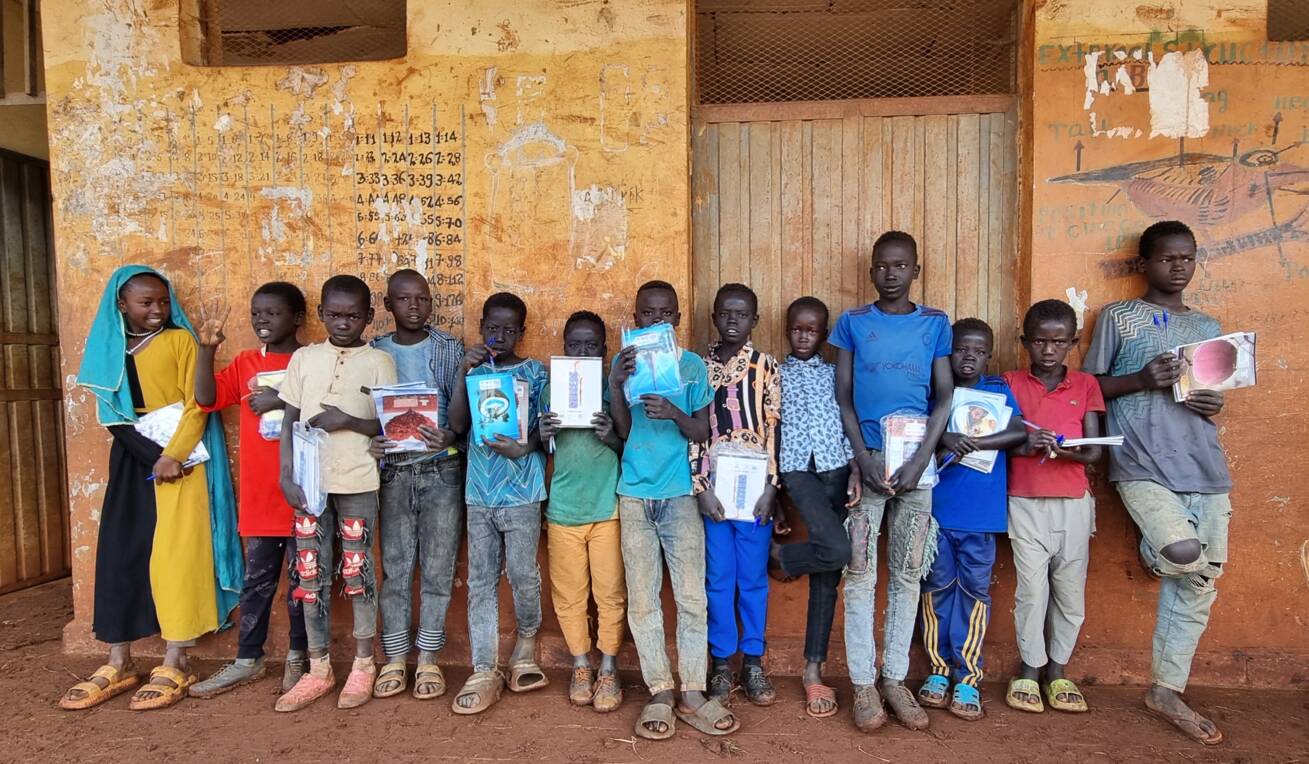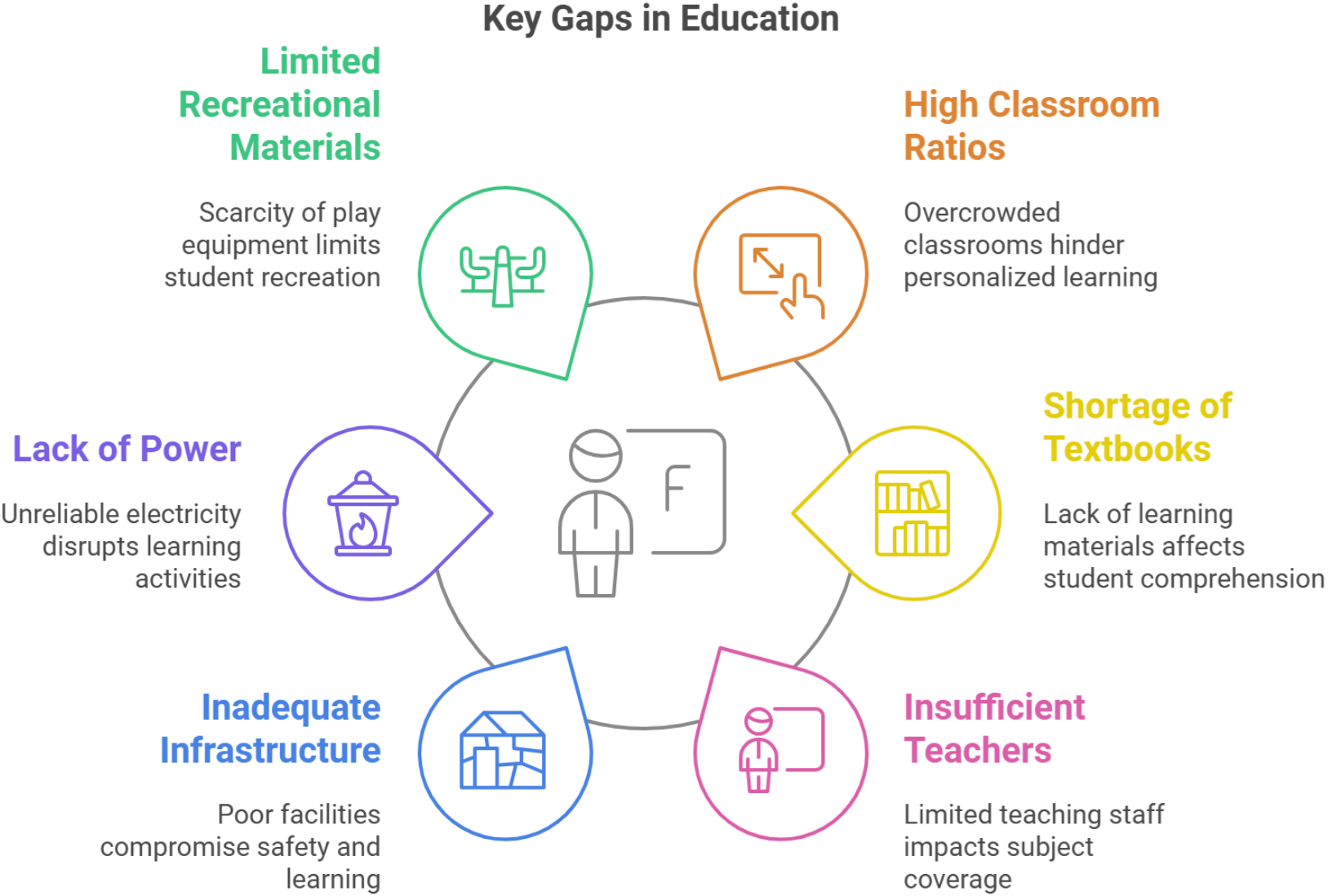Education in Ura Settlement

Education in Ura Settlement
On this page
Key Resources
What is the vision for refugee inclusion in Ura woreda?
All refugee children attend government-run primary and secondary schools together with host community children. If the Ura settlement hosts a maximum capacity of 34,000 refugees, an estimated 10,880 children will require schooling (approx. 32% of the population will be school-aged children), in addition to the 1,550 host community children.
Refugee children follow the national curriculum of Ethiopia and sit for national assessments and exams. The language of instruction is aligned with national policy.
Government education services are extended in the refugee hosting area, both in Ura settlement at pre-primary level, and in Akuda kebele (village), where the Akuda Primary School (grades 1-8) serves host community children and refugees. There is also an Ura Inclusive School (grades 1-12) at Ura woreda (district), covering both primary and secondary aged children, which serves only host community children.
University students arriving from Sudan enroll in Ethiopian universities and receive scholarship programmes.
Refugee youth access the TVET programs available in Benishangul-Gumuz region.
Teachers are well trained and able to deliver quality teaching to children enrolled in school.
The Regional Education Bureau (REB) and woreda education authorities oversee and support the schools serving refugee and host community children.
Is there an enabling policy environment?
In accordance with Education Sector Development Plan VI (ESDP VI), the Refugee Proclamation No. 1110/2019 and the Djibouti Declaration on Quality Education for Refugee, Returnees and Host of 2017, the Government of Ethiopia facilitates the inclusion of refugee children in the national education system.
In December 2023, the Government of Ethiopia made a pledge at the Global Refugee Forum to facilitate the inclusion of refugees into national systems with focus on secondary education and TVET.
In Benishangul-Gumuz region, the Regional Education Bureau (REB) and woreda education authorities are committed to facilitating the inclusion of refugee children arriving from Sudan. To facilitate planning of the extension of the government system, the REB led an assessment in June 2024 with the Refugees and Returnees Service (RRS), UNHCR and partners to determine priority needs and required investments in Ura settlement, in the neighboring Akuda kebele and in the Ura woreda.
What do the national standards require?
With time, gross enrollment rates of children are the best measure of progress. However, gross enrollment rates of refugee children cannot yet be calculated as they have not yet undergone individual registration in the Ura settlement (L3).
The pupil to teacher ratio is reduced to improve the quality of education in school. Akuda Primary School pupil to teacher ratio should reduce from 87:1 to 50:1 (because of recruiting 174 new teachers).
All primary and secondary refugee and host community children receive yearly scholastic materials and uniforms. Children have access to school desks and other required school supplies to learn, in line with recommended national standards.
All primary school-going refugees and host community children benefit from school meals.
The REB’s sector plan and budget include refugees to facilitate the obtention of predictable financing to support refugee inclusion in the government education system.
The REB and Woreda Education Office regularly supervise the schools that provide education to refugees and host communities.
What investments are required to deliver on the vision?
Pre-primary, primary, and secondary school infrastructure is expanded. It is important to note that there is no secondary school in Ura woreda; consequently, the regional education authorities are using a double shift approach at Ura Inclusive School to provide both primary and secondary schooling to host community children. A secondary school needs to be established to provide access to secondary schooling for both refugees and host community children.
Provision of adequate water and sanitation facilities on school grounds.
Connection of the schools with the national grid and solar panels to ensure a reliable and climate-smart power source.
Fast-tracking of teacher recruitments through the REB and Woreda Education Office, and support for capacity building of teachers. Deployment through the government ensures a harmonization in the salaries of teachers across the woreda.
Provision of classroom equipment and learning materials for the secondary school, establishment of an ICT and science laboratories will enhance access to modern learning tools.
Provision of safe recreational outdoor opportunities for students through building a perimeter fence around school grounds and providing outdoor playgrounds.
Provision of financial support to refugee students that join Ethiopian Universities scholarship programme.
Support for refugee enrollment in TVET programs.
Investments, Requirements, and Gaps in Infrastructure as of December 2024
Ura Settlement Pre-primary Facilities (Kindergartens)
| Facilities as of December 2024 | 0 |
| Constructions in the pipeline | 0 |
Construction requirements to accommodate all refugee and host community children (for a max 12,430 children) |
|
| Gaps |
|
Akuda Primary School (Grades 1-8)
| Facilities as of December 2024 | 3 classroom blocks, of which only one is permanent, and the rest are mud-plastered |
| Constructions in the pipeline |
|
Construction requirements to accommodate all refugee and host community children (for a max 12,430 children) |
|
| Gaps |
|
| Sources of financing support |
|
Ura Inclusive School (Grades 1-12)
| Facilities as of December 2024 |
|
| Constructions in the pipeline |
|
Construction requirements to accommodate all refugee and host community children (for a max 12,430 children) |
|
| Gaps |
|




